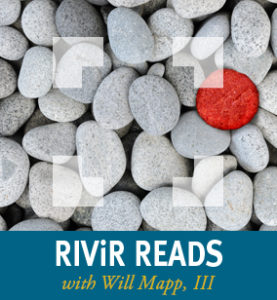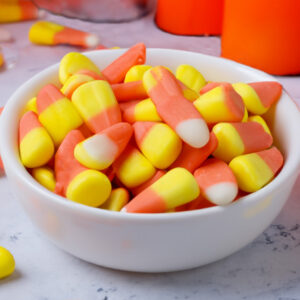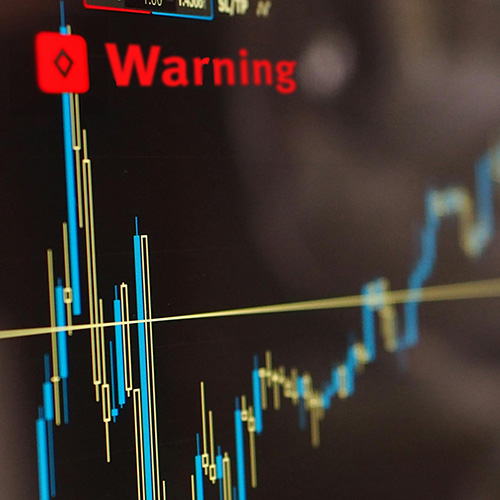Candy Corn Explained
 We love data at Qlarant. We love slicing data. We love dicing data. We love ETL-ing data. We love data so much, we use this blog to explore the deepest, darkest recesses of the Internet, finding data you’re the most curious about. Fall is upon us, and with the fall comes sweater vests, pumpkin spice lattes (PSLs), and yes – candy corn. Love it, or hate it, candy corn is a Halloween favorite. We enjoy polarizing topics on RIViR Reads. You may remember last year’s ode to the data science behind the PSL that made you anticipate another season of watered down, spicy coffee, or made you giggle at the sheer volume of the drink that aficionados spend cold, hard cash on.
We love data at Qlarant. We love slicing data. We love dicing data. We love ETL-ing data. We love data so much, we use this blog to explore the deepest, darkest recesses of the Internet, finding data you’re the most curious about. Fall is upon us, and with the fall comes sweater vests, pumpkin spice lattes (PSLs), and yes – candy corn. Love it, or hate it, candy corn is a Halloween favorite. We enjoy polarizing topics on RIViR Reads. You may remember last year’s ode to the data science behind the PSL that made you anticipate another season of watered down, spicy coffee, or made you giggle at the sheer volume of the drink that aficionados spend cold, hard cash on.
Candy corn is no different. A quick online search will find people loving the waxy, sugary, treat or haters calling the triangular substance ‘chicken feed’.
Speaking of which…
Candy Corn’s Origin Had Children Crowing
 We have a gentlemen named George Renninger to thank for candy corn. The employee at the Wunderle Candy Company created the snack in the late 1880s. The venerable brand, Jelly Belly wound up manufacturing candy corn in 1898 and marketed the stuff to rural communities. Jelly Belly nicknamed this newish treat, chicken feed. This chicken feed candy featured prominently in a lineup of other agricultural themed candies with the shapes of chestnuts, turnips, and clover leaves.
We have a gentlemen named George Renninger to thank for candy corn. The employee at the Wunderle Candy Company created the snack in the late 1880s. The venerable brand, Jelly Belly wound up manufacturing candy corn in 1898 and marketed the stuff to rural communities. Jelly Belly nicknamed this newish treat, chicken feed. This chicken feed candy featured prominently in a lineup of other agricultural themed candies with the shapes of chestnuts, turnips, and clover leaves.
Candy corn of yesteryear was handmade. Confectioners poured colored, corn syrup and sugar slurry into candy corn shaped molds. A slurry for each color of the candy was poured one after another and glazed with a lac resin. That’s bug secretion. No, really, it is.
Candy corn wasn’t associated with the fall or Halloween until the 1950s when people began to hand out individually wrapped candy to trick-or-treaters. The candy’s harvest themed colors were associated with Halloween colors and the rest is history.
Brach’s Confections uses automation and machinery to make today’s candy corn. The confectioner accounts for 85 percent of trick-or-treaters’ candy corn haul. That’s 7 billion individual white, orange, and yellow triangles during the Halloween season.
Why Is Candy Corn So Polarizing?
If you want to start something in a group conversation, jump in and admit you love candy corn. Passions flare on both sides with brother against brother disowning each other for either loving or hating the stuff. According to a Today Show article, scientists say people who love the stuff are pro-corn people. “The area of the brain where we process smell is the same part of the brain where we store memories and process emotion. In that primitive part of the brain, often there is a strong connection between an event, especially when it’s food, especially childhood,” says Marie Wright, chief global flavorist at Archer Daniels Midland. A company that’s developed more than 1,000 food flavors. People love candy corn so much you can even rent a Candy Corn Suite at Great Wolf Lodge.
But, it’s not real corn. A fun childhood where you ran around in flame-attracting masks and costumes doesn’t explain why Americans buy more than 30 million pounds of this stuff. Americans bought $59.3 million of candy corn last year.
Whether you’re part of the 34 percent of candy corn haters, the 22 percent of candy corn lovers, or the 44 percent who remain silent in the group chat, have a fun and fantastic Halloween. Always check your candy for tampering and if you see someone dressed as Star Wars’ Grand Admiral Thrawn, wave and say, “Hi!”. It’s probably me.
If you’re reading this on October 30th – Happy National Candy Corn Day!
Dedicated to the world’s greatest admin, Carolyn A. Lane: Candy Corn Lover
Sources: Brach’s Confections, Forbes, The Outcome, USA Today







